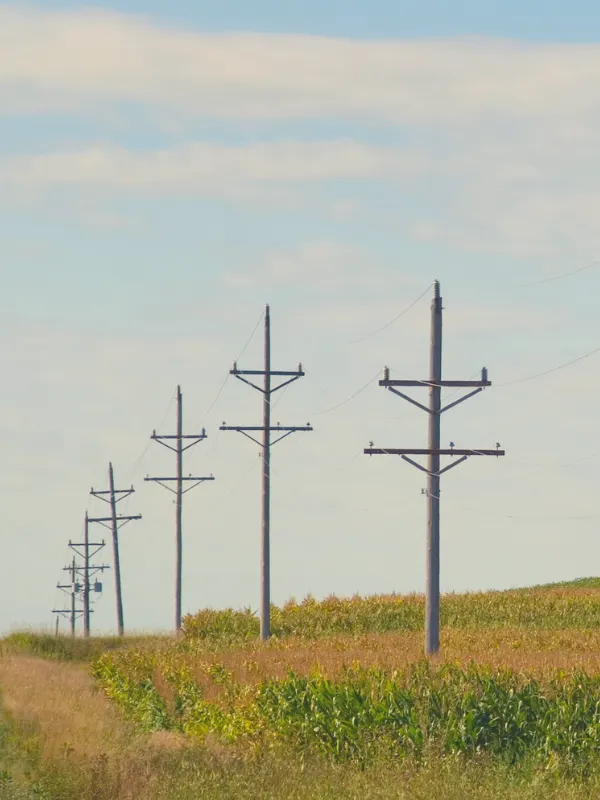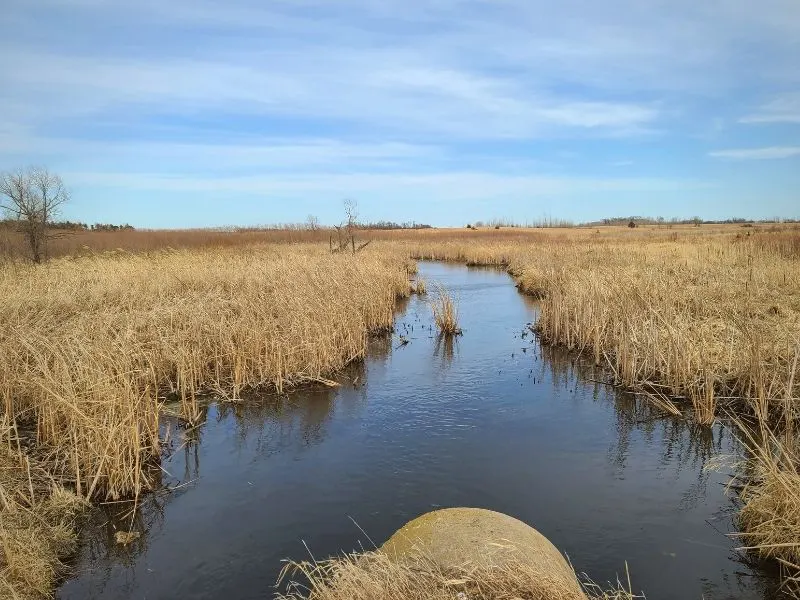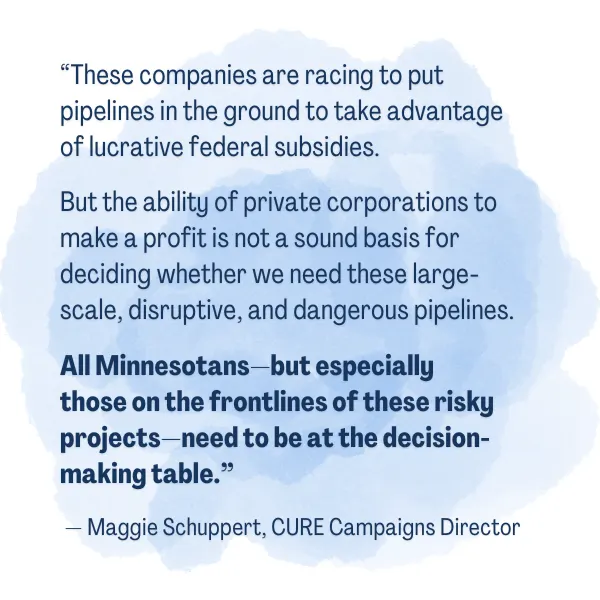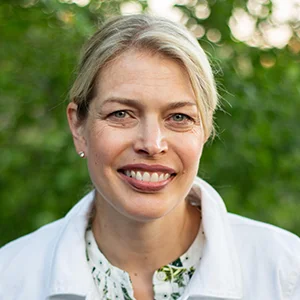Over the last two months, there have been major developments and milestones in CURE work in rural communities and the energy future of the state and country–and we’ve been making headlines.
Historic wins for Rural Electric Co-ops in the Inflation Reduction Act

CURE’s work around Rural Electric Co-ops had a huge win in August with the passage and signing of the Inflation Reduction Act (IRA). This Act includes America’s most significant investment ever in rural electrification, with over $9.7 billion available to Rural Electric Cooperatives for new clean energy investments. CURE has been leading the charge on rural electrification for years. In 2018, Erik Hatlestad, CURE’s Energy Democracy Director, was the chief author of the Rural Electrification 2.0 report outlining the policies that eventually were incorporated into the IRA and helped to lead the Rural Power Coalition in championing this movement.
While CURE is celebrating this hard-fought victory, we know the real challenge is just beginning. Electric co-op member-owners in Minnesota and across the country must fight for a strong implementation of Inflation Reduction Act policies that prioritize clean energy, democracy, and local jobs. Learn more here.
CURE’s win for Rural Electric Co-ops and this historic investment has also been making headlines. Catch up on some of the press here—
- Rural Energy Is Especially Dirty and in Debt. Enter the Inflation Reduction Act (9/1/2022 – The New Republic)
- How an unlikely trio helped secure billions for rural electric cooperatives (10/10/2022 – Utility Dive)
- New law provides $9.7 billion in clean energy funding for rural cooperatives (8/21/2022 – West Central Tribune)
- Rural Electric Co-ops Get a ‘Downpayment’ on the Renewable Future (9/22/2022 – The Daily Yonder)
- For southeast Minnesota’s rural electric co-ops, Inflation Reduction Act funding will level the playing field (8/25/2022 – Rochester Post Bulletin)
Minnesota Supreme Court rules Limbo Creek is a Public Water

On Wednesday, September 28, the Minnesota Supreme Court upheld a lower court ruling that Limbo Creek is a public water.
“CURE values and understands the importance of local control in the decision-making process. Water is not confined to county boundaries and decisions upstream impact the communities downstream. State oversight and the classification of public waters is critical. For counties downstream of “local control” water decisions, their financial burdens have grown in addition to the bill all Minnesotans pay to manage flooding and repairs. The ruling today reminds us that public waters are held in trust for the use and enjoyment of the public today and for future generations.” Peg Furshong, CURE’s Director of Programs
CO2 Pipelines debate heating up in Minnesota

On September 12, Iowa-based Summit Carbon Solutions (Summit) submitted its first route permit application to the Minnesota Public Utilities Commission (PUC) for the Otter Tail and Wilkin Counties section of its proposed multi-state Midwest Carbon Express CO2 pipeline network (PUC Docket Number: 22-422).
Summit’s proposed CO2 pipeline network will cut through Chippewa, Cottonwood, Jackson, Kandiyohi, Martin, Otter Tail, Redwood, Renville, Wilkin, and Yellow Medicine Counties. This leg of the project is 28.1 miles, a small fraction of the more than 212 miles of highly pressurized hazardous liquid CO2 pipeline proposed for Minnesota.
The PUC ruled in June that they have jurisdiction over the routing of CO2 pipelines.
Landowners and community members impacted by the proposed CO2 pipelines in Minnesota are concerned about the safety and negative effects of CO2 pipelines and Summit’s shady tactics as well as being skeptical about the company’s claims that they will be a boon to rural communities.

Last November, CURE petitioned the Environmental Quality Board (EQB) requesting that an Environmental Assessment Worksheet (EAW) be prepared for Summit’s CO2 pipeline project, the Midwest Carbon Express. Given that no CO2 pipelines have been built in MN before, CURE will continue to fight to make sure this project—and any other CO2 pipeline in Minnesota—gets a rigorous social, environmental, and economic review so that Minnesotans have the information about the risks and impacts of these projects that they deserve.
While the conflict over CO2 pipeline construction has grown heated in surrounding states, the debate has been quieter in Minnesota. That seems likely to change as the companies attempt to secure more easements and as the permitting process proceeds.
CURE welcomed two new staff members in August
Mitchell Hancock joins CURE as the Energy Democracy & Digital Organizer

Sara Wolff joins CURE as a Minnesota Rural Democracy Project & Democracy and Climate Pledge Organizer



